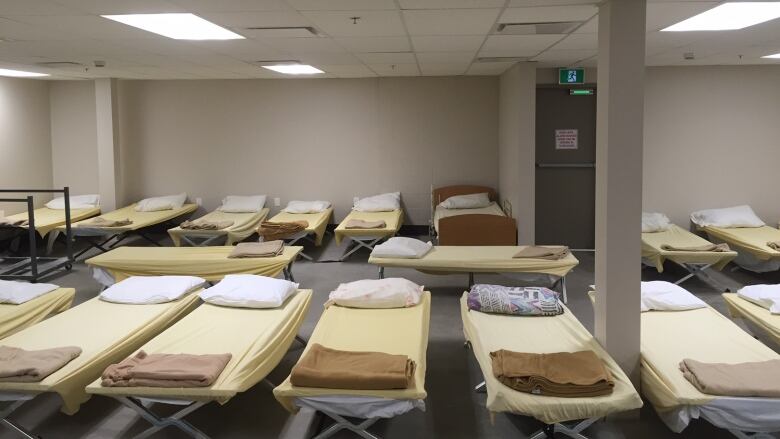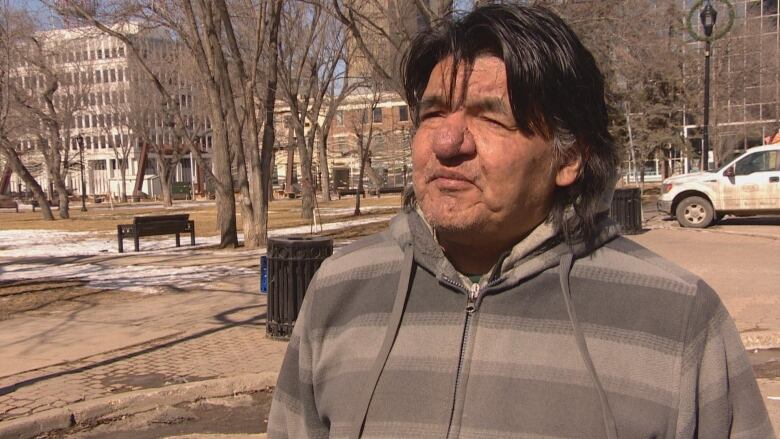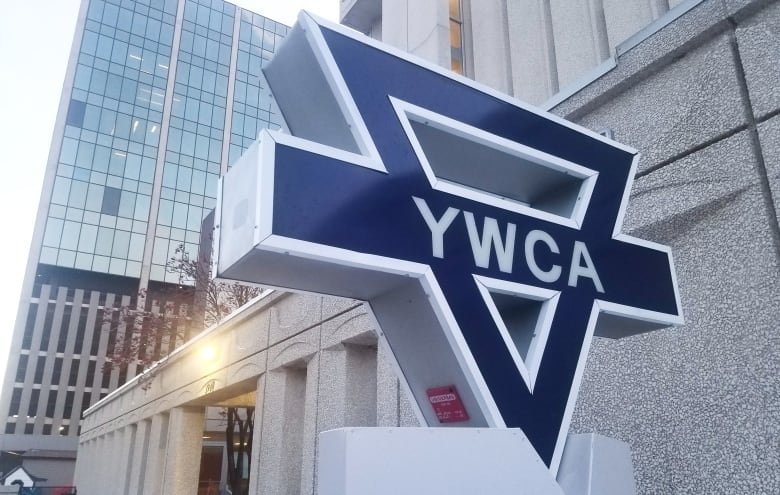Homeless shelters call for urgent funding as pandemic arrives
Ministry of Social Services adjusts rules around income support but emergency shelter funding not confirmed

Day by day, Regina man Joseph Reynolds is finding more doors closed to him as the COVID-19 pandemic hits Saskatchewan.
"I access a lot of the non-profit associations around the city and they are closed, and I suffer from schizophrenia and ... Canadian Mental Health is closed," said Reynolds.
"I find it kind of hard right now on myself."
As social support services begin to see the impacts of COVID-19 on their clients, concerns are being raised about how the pandemic will affect vulnerable and homeless residents of Saskatchewan.

Toby Esterby, board president of the Saskatoon Housing Initiatives Partnership, said the pandemic is already increasing pressure on shelters.
"Individuals that might have been couch surfing or not getting picked up by the usual services that would engage those people some of those folks are materializing and showing up in our systems," said Esterby, who is also the executive director of Camponi Housing.
"Not only is it increasing the burden of the number of people being served but obviously with the need for sterilization and cleanliness and social distancing in a shelter environment that gets really complicated really fast, so there are some concerns around funding."
Esterby said more couch-surfers are turning to shelters and other social services as they are forced to leave homes where the resident is self-isolating.
"It's actively increasing the number of people that we're seeing needing housing and not having housing," he said.
"It's not exactly warm out yet. Thank heavens this isn't January and it's [not] 50 below."
The Ministry of Social Services said Friday it will "lessen" reporting requirements for people on income assistance.
"This means that if a client is late reporting certain information, Income Assistance will still process the payment so that the client receives it on or before April 1, 2020," reads a notice on the provincial website.
On Friday the Minister of Social Services Paul Merriman discussed the changes in a conference call with almost 90 representatives from social support groups across the province.
Esterby was on the conference call.

"They do encourage anyone who has the ability [to report] still to do that, to make sure you get that reporting in, but that the folks that are having difficulty because of lack of access to computers or lack of access to cell phones or lack of access to an institution or anybody to help them with it ...it's not going to be a detriment to the funding of those people," said Esterby, adding that the closure of public libraries would make reporting more difficult for some.
He said shelters have pitched the creation of a pandemic strategy, which would be similar to cold-weather strategies that provide funding for shelters to ramp up their operationsin extreme weather.
Although Esterby said the province did not commit to additional funding in "dollars and cents" during the conference call, he said it was a "positive" conversation that reassured social support workers about how the ministry is approaching the pandemic.
"The minister did say to us ...when it comes to the need that we're seeing in the community he assured us, he said if you see need look after the need, get them in the shelter and we'll figure it out. Now I know, this is where people are stumbling, because is that a guarantee of funding, is it not?
"And no it's not a guarantee of funding because funding is specific and funding has a dollar value attached to what it is.
"I believe the government and the Ministry of Social Services is saying the priority has to be the people. So we're in crisis mode here. So look after the people and then let's continue to work together to figure out how we're going to make that workon a spreadsheet.What I heard today was the minister committingto continuing to do that work."
Shelter calls for urgent action
But The Lighthouse Supported Living, which runs an emergency shelter in Saskatoon as well as longer-term residential suites, is calling for an urgent commitment from the province to provide more funding.
In a statement issued after Friday's conference call, the centre said COVID-19 preparation and safety is "taxing an already underfunded sector."
"The current model of funding not only creates long-term financial insecurity but currently also exacerbates the risk of spreading the virus to this very vulnerable population," reads the statement.
"Currently, each individual accessing shelter services encounters several potential virus transmission points."
The current model of income support funding provides money for rent and utilities directly to the client.
Prior to changes made in 2019, the ministry made those payments directly to the landlord or service provider. Only clients who were on income supportbefore the changes remain on the old system.
"There are a high number of transmission points in making personal payments such as return trips for tenants from their residence, to the bank, then to the landlord or utility company," said the Lighthouse, which has previously called for the changes to be reversed.
"Each encounter increases the risk of contracting or spreading COVID-19."
Ministry of Social Services Assistant Deputy Minister Tracey Smithtold reporters Friday the ministry is not making any changes to its income support programs.
She said emergency funding for shelters is "something that we can take a look at" but did not confirm any commitment to additional funding or specific funding measures.
No formal strategy has been implemented for shelters in response to the pandemic.
Access to cleaning supplies among concerns
The YWCA in Regina runs a women's domestic violence shelter and homeless shelter.
Chief executive Melissa Coomber-Bendtsen said one of her biggest concerns for the pandemic is being able to access supplies, such as cleaning products.
"Right now we don't have cases of COVID[-19] in our shelters," she said.
"When that does happen, you know, because I think it will, I think we'll be in a very different situation when we start to actually report the cases and have to work on isolation and isolating clients that have been diagnosed."
Coomber-Bendtsen said she is confident the centre'steam of front-line workers will be able to respond to the pandemic, andshe feels the YWCA is being supported by the Ministry of Social Services.
But sheworries about the overall impact the pandemic could have on vulnerable populations, adding that she hopes appropriate measures are introduced to avoid overloading services like the YWCA.

"I'm incredibly concerned about it. There's no doubt that a good majority of the folksthat live with us and that we serve are not in great health," said Coomber-Bendtsen.
"I think our vulnerable sector of people will be hit hard by this virus."
Joseph Reynolds, who relies on low income support payments from the Ministry of Social Services, said support for vulnerable people overall is dwindling as more offices close their doors.
"You're kind of walking around not sure, really uncertain, there's a lot of uncertainty out there I feel.
"A lot of 'What are we going to do? Where are we going to go? How are we going to use our time management?'"
'Day by day'
Reynolds said he hopes the pandemic passes quickly because he can already see it is affecting vulnerable people.
He said he was grateful to community services likeCarmichael Outreach for providing meals to those in need.
As uncertainty over the pandemic continues, he plans to take the advice of his pastor to take it "day by day."
He urged the public to consider howCOVID-19will affectpeople in need.
"Just to help out, just to think about us, just to think about the marginalized," he said.
With files from CBC's Kirk Fraser












_(720p).jpg)


 OFFICIAL HD MUSIC VIDEO.jpg)
.jpg)



























































































